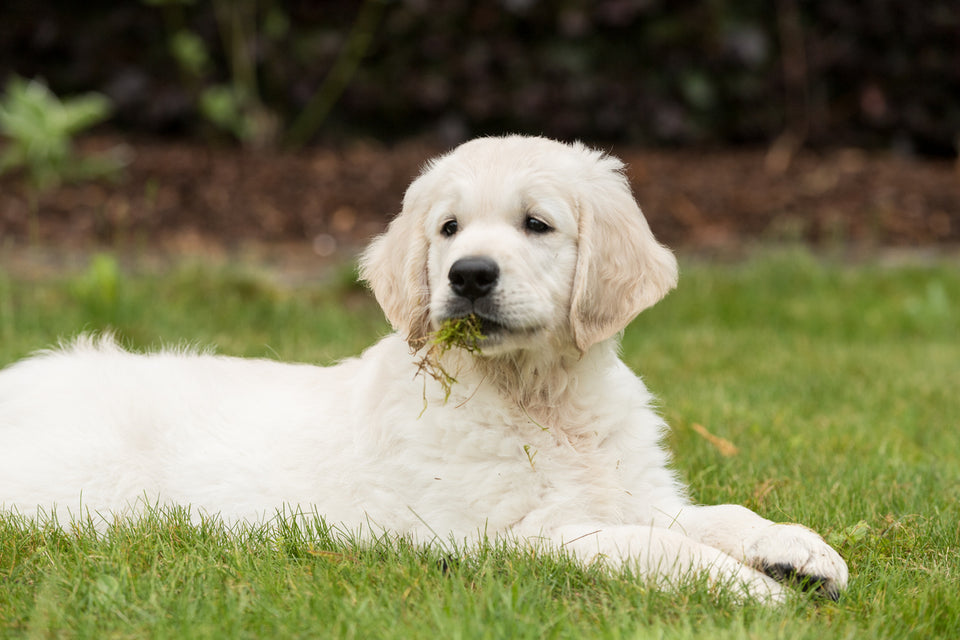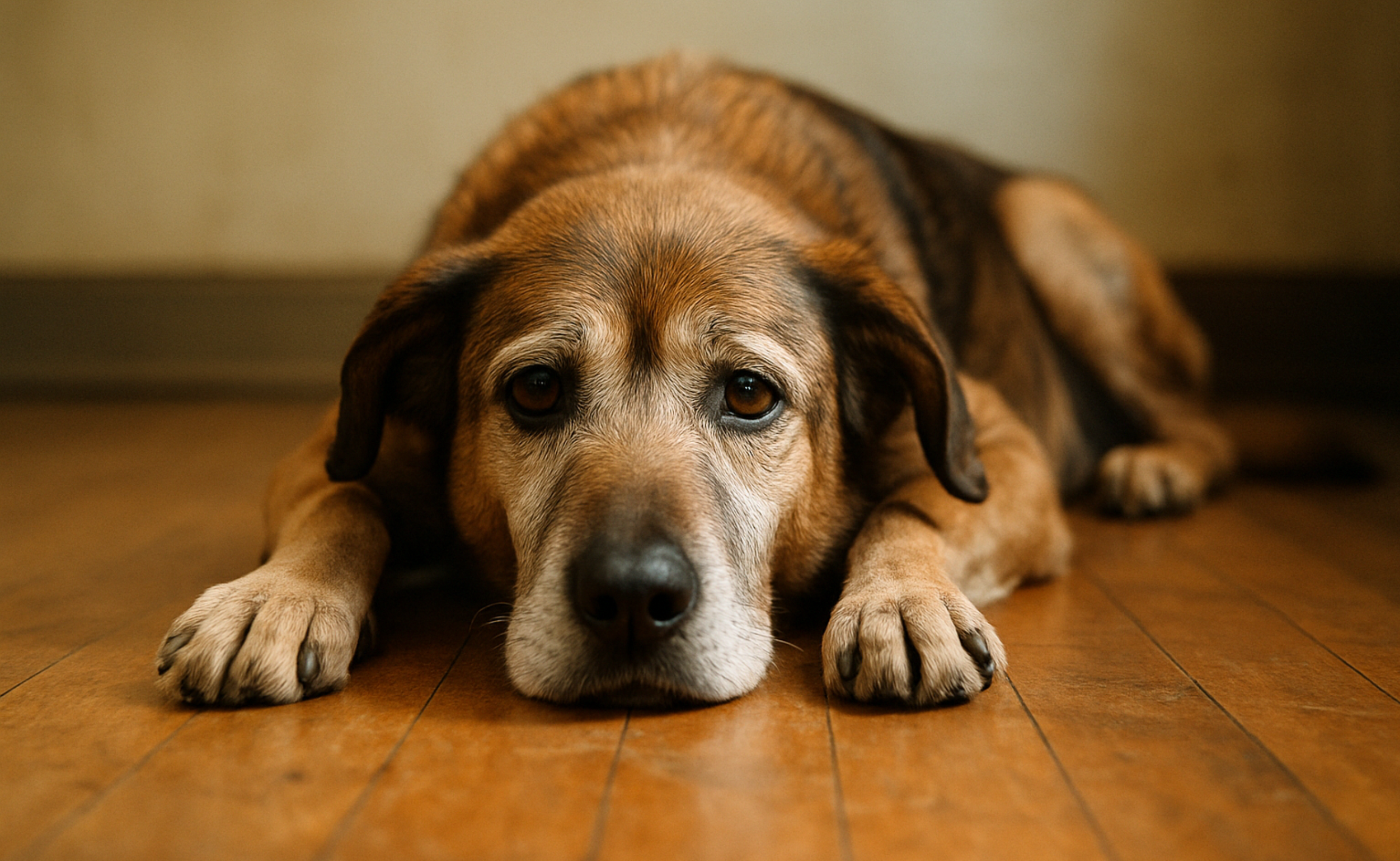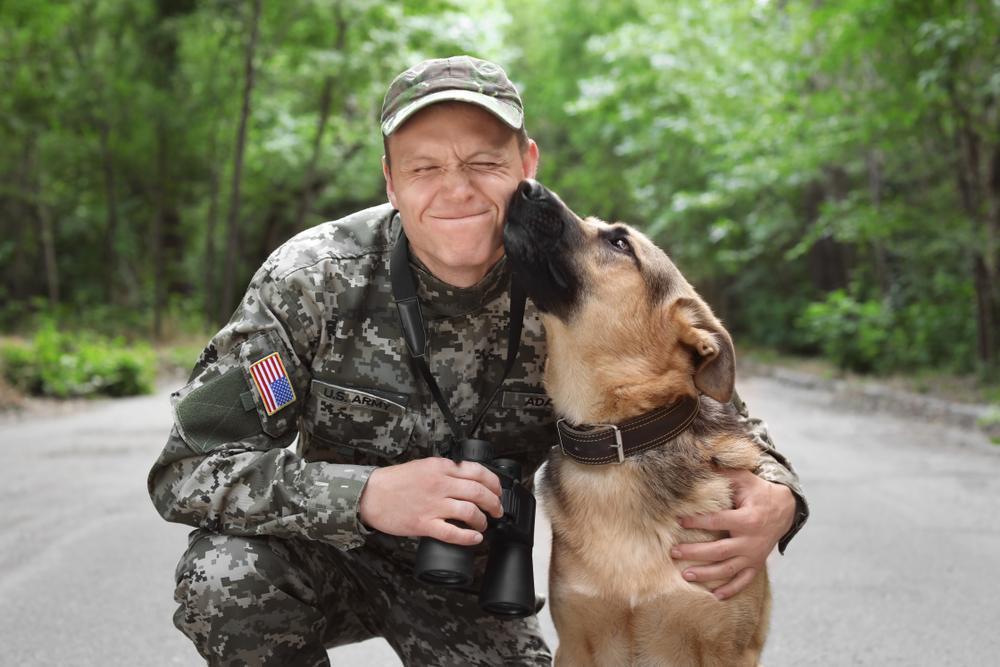9 Reasons Why Dogs Eat Grass (and 9 Ways to Make Them Stop)

Dogs do a lot of things that leave us scratching our heads. Your dog or puppy eating grass is probably high on the list. Why do they do it? What does it mean? And should you make them stop? Come along as we unravel this mysterious dog behavior.
Do Dogs Eat Grass to Throw Up?
It’s a common assumption that dogs eat grass to make themselves throw up or to relieve an upset stomach. But one study found that while a large percentage of dogs eat grass, only a small percentage of those dogs vomited afterwards. An even smaller percentage of dogs showed any signs of illness or upset stomach prior to munching on the lawn. Not only that, but wolves, foxes and coyotes also sometimes eat grass. So it appears to be a normal behavior for all canines, and your dog eating grass is just part of them doing their doggie thing.

Reasons Why Dogs Eat Grass
So why do dogs eat grass? It turns out, they have a lot of reasons for nibbling the greenery.
- Instinct - Since wolves also eat grass, some experts speculate that grass eating is an instinctive holdover from this ancient doggie ancestor. While wolves are strictly carnivores -- unlike domestic dogs, whose digestive systems have adapted to life with humans and can derive nutrients from plant matter and carbohydrates -- they hunt and eat animals, like deer, that feed on grass and other plants. This may have simply given them a taste for grass, which they passed on to their domesticated descendents.
- Missing nutrients - Eating things that aren’t food is a disorder known as pica. Dogs commonly develop pica as a response to a deficiency in their diet. Some veterinarians believe that dogs eat grass to get vitamins and other nutrients that are lacking in their daily diet.
- Fiber - In one case study involving a miniature poodle who ate grass and vomited regularly for seven years, she stopped after her pet parents switched her to a commercial high-fiber dog food. If your dog needs fiber, they could be eating grass to get the roughage they need to improve their digestion and stay regular.
- Upset stomach - In the first study mentioned above, nine percent of dogs showed signs of illness prior to eating grass, while 22 percent of the dogs studied vomited after eating grass. Some dogs do appear to eat grass after showing signs of gastrointestinal distress, although another study found that dogs with diarrhea are actually less likely to eat grass.That said, bile collects in a dog’s stomach when they go a long time between meals, and this can cause stomach irritation and discomfort. If your dog eats grass and throws up yellow foam before their morning meal, this might be why.
- Boredom - Energetic dogs and puppies who don’t get enough exercise, mental stimulation or engagement might turn to eating grass just to have something to do. If you let your pooch hang out in the back yard without playing with them or giving them activities and you find them nomming the grass, this could be the reason.
- Hunger - When it comes to eating, dogs are opportunists, and they’ll snack on whatever they can find that’s even remotely edible -- including grass. Yet another study found that grass-eating behavior is tied to a dog’s eating schedule, with dogs being more inclined to eat grass earlier in the day and before a meal. Right after a meal, or later in the day when they’ve eaten all their food for the day, dogs were less likely to chow down on grass.
- Curiosity - You’ve probably been around a baby or toddler who sticks everything in their mouth as they explore, and dogs are no different. Puppies, especially, will taste and chew on grass -- and pretty much everything else that fits in their mouths -- as they get to know the world around them. If they enjoy the taste, they’re likely to keep on doing it.
- Attention - To your fur bud, even the seemingly negative attention of you telling them no is better than no attention. If eating grass gets you to talk and pay attention to them, they’ll be more likely to give it a nibble whenever they feel neglected or ignored.
- They just like it - It could be that your dog ate grass once for one of the reasons above, and they liked the taste and texture so much that they keep doing it. And wet grass might also be a way for your thirsty dog to get some relief.
Paying close attention to what’s going on with your pup will help you figure out what’s motivating them to make like a cow and graze. If they suddenly start eating grass like crazy, your dog eats grass and vomits every morning, or they eat grass and vomit foam on an empty stomach, you should talk to your vet to see if there might be an underlying cause. They may not be getting the right balance of nutrients in their diet.
If your dog’s stomach makes gurgling noises before they eat grass, this might indicate an upset tummy. Just keep an eye on the situation, and if it continues, or they vomit a lot or get diarrhea, be sure to let your vet know what’s going on.
Is Eating Grass Bad for Dogs?
The good news is that eating grass isn’t a behavioral problem, and it probably doesn’t indicate a serious health problem. But that doesn’t mean you should ignore your dog’s grass eating behavior.
While grass by itself won’t harm your dog, it may contain substances, like pesticides, weed killer or feces from other animals, that can do a lot of harm. If your pup eats grass that might have been treated with herbicides or pesticides, get them to a vet right away if you notice these signs of poisoning:
- Nausea and vomiting
- Diarrhea
- Heavy drooling
- Loss of appetite
Fecal matter left on grass by other animals may contain the eggs or larvae of intestinal parasites that can make your fur baby sick. It can also contain parvovirus, a serious gastrointestinal disease that’s especially dangerous to puppies. If you can’t stop your dog from eating grass, you should make sure they’re vaccinated against parvo and other common dog illnesses, and also treat them with a monthly dewormer to prevent parasites from making them ill.

How to Stop Your Dog from Eating Grass
While it might not be a big deal if your dog has an occasional nibble of grass in your own back yard, you should do everything you can to discourage eating grass at the dog park, around your neighborhood or anywhere else you’re not certain it’s safe. Here are some steps you can take to cut down on your fur kid’s grass munching, if not eliminate it altogether.
- Feed them first thing in the morning to prevent bile from building up in their stomach.
- Make sure they get plenty of exercise, engagement and mental stimulation throughout the day.
- Limit their access to grass to right after meals or later in the day when they’re not hungry.
- Give them a chew toy to occupy them when they go outside.
- Play with them or redirect them to a treat or another activity when you catch them eating grass.
- Walk them on a leash in grassy areas and teach them the “leave it” command.
- Bring water for your dog on long walks or trips to the park.
- Ask your vet to recommend a nutritionally balanced food that has plenty of fiber.
- Grow wheat grass for them to safely eat instead.
Overall, eating grass is just one of those quirky things dogs do that make us love them so much. As long as you take safety precautions, they’re getting all of their nutritional needs met, and they’re not throwing up or showing other signs of illness, it’s not something you need to worry about. But when in doubt, it’s always best to talk to your vet if you notice any changes in your dog’s behavior.
Share this article
written by


